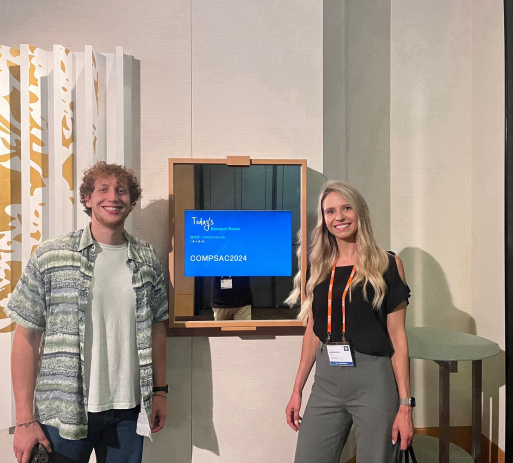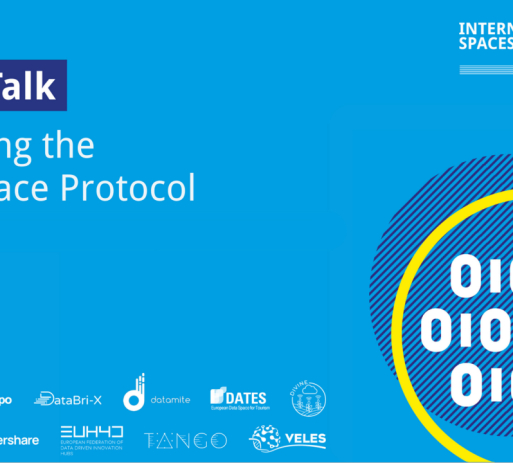How LINKS Foundation transforms Energy Data with blockchain and AI
LINKS Foundation was created as a result of the desire of the Compagnia di San Paolo Foundation – Italy’s largest banking foundation – and the Politecnico di Torino – a prestigious university, to equip themselves with a ‘tool’, i.e. an institution capable of operating in applied research, innovation and technology transfer: a bridge between basic research and the market.
LINKS has been operating for about 20 years at the national and international levels and was established through the merger of two historical research institutes, the Istituto Superiore Mario Boella (ISMB) and the Istituto per i Sistemi Territoriali Innovativi (SiTI).
Strengthened by the collaboration of about 180 researchers, the Foundation oversees technical and scientific disciplines in the fields of digital technologies and territorial development, such as Artificial Intelligence, connected systems and IoT, cybersecurity, advanced computing systems, and satellite systems, to realise innovative projects in various application sectors: Industry 4.0, Intelligent Mobility, Agritech, Space Economy, Smart Infrastructures, and Cultural Heritage.
LINKS aims to promote, lead and enhance innovation processes through research projects with strong innovation potential that can create an impact on the production and public sectors, and that can be confronted in an international context. The LINKS Foundation accelerates competitiveness by working with large multinational companies, and small and medium-sized enterprises with a strong innovative vocation, but also aims to ‘accelerate the common good’ in partnership with public bodies, intermediate bodies, non-profit and cultural organisations. LINKS also plays a role as a facilitator of the innovation ecosystem in its local area.
Which is the role of LINKS in DATA CELLAR?
LINKS has a specific role within the DATA CELLAR project: to build a decentralised marketplace based on Blockchain technology. This marketplace will enable users to securely and transparently sell and buy energy data and algorithms. By leveraging the intrinsic features of Blockchain, such as immutability and security, all transactions will be traceable and unalterable, fostering an environment of mutual trust among market participants.
In addition, a loyalty platform will be integrated into the system to incentivise user data exchange and serve as an indicator of the quality of the data provided. This platform will not only motivate users to share their data but also ensure that high-quality data is appropriately rewarded, thereby continuously enhancing the value and quality of the information within the ecosystem.
The use of Blockchain for this specific use case offers numerous advantages. It ensures security and transparency by recording every transaction and data exchange in an immutable ledger, which increases user trust in the system. The decentralised nature of Blockchain reduces the risk of censorship and data manipulation, promoting a fair and democratic environment. Additionally, the ability to trace the origin and history of the data allows buyers to verify the quality and reliability of the information they receive. Thanks to the implemented reward mechanisms, economic incentives will encourage users to participate in the marketplace and share high-quality data. Furthermore, transaction costs will be reduced by automating many marketplace operations via smart contracts.
As the second task LINKS is in charge of developing a visual AI tool to improve energy sector data analysis within the DATA CELLAR ecosystem. The tool enables energy data analysts to create, implement, and share machine learning models, enabling the extraction of valuable insights from energy datasets. The tool emphasizes the importance of energy data in driving efficiency, sustainability, and innovation in the energy sector. Orange Data Mining was chosen for its intuitive drag-and-drop interface, offering data preprocessing, visualisation, and support for various machine learning algorithms. The tool’s training pipeline and inference pipeline are used to process initial data and apply the model to new data. The trained models are then uploaded to a server for on-demand access, facilitating collaborative analysis and knowledge sharing within the DATA CELLAR ecosystem.
Why is LINKS important for DATA CELLAR?
LINKS is relevant to DATA CELLAR because it provides technological knowledge and creativity to the project. Its participation in creating a decentralised market for data transactions guarantees the reliability, openness, and credibility of the transactions – this is the basis for establishing trust from users and their active involvement in the ecosystem. The marketplace besides the data exchange organises also a loyalty platform, which ensures the quality of the data and motivates users to contribute to the platform using Blockchain technology.
Furthermore, the project is boosted by LINKS’ development of a visual AI tool that enhances the data analysis capacity. It enables energy data analysts to make effective decisions from large sets of energy data so that the energy sector can become efficient, sustainable and innovative. Thus, the project of making the process of advanced data analysis more available to a wider audience, LINKS promotes the sharing of information and knowledge.
In other words, LINKS is significant for DATA CELLAR not only in terms of technical solutions but also in terms of the implementation of the latest technologies to improve user experience, data quality, and analysis. Thus, the approach of LINKS to provide reliable data exchange and relevant data analysis tools makes the company an essential partner for the DATA CELLAR project to achieve its main goals.





